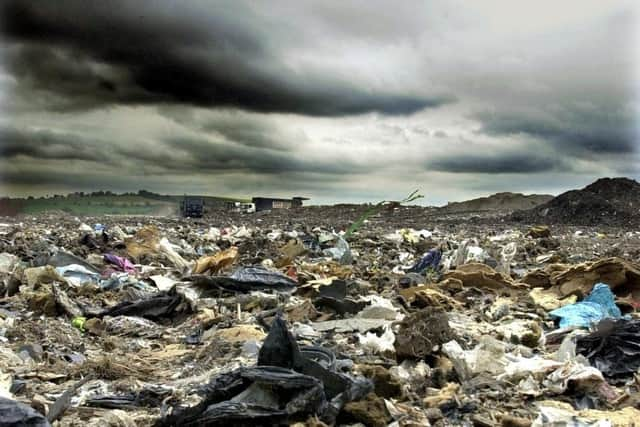The growth in middle class consumers across the globe exacerbates the recycling problem - Andy Brown
It was an incredibly cheap trip because the country was very poor with the average standard of living being the equivalent of a hundred pounds a year across a country for a billion people.
Now it is normal to be whisked across China on high speed train lines and to arrive at swish cities where much of the technology is highly advanced. The standard of living has massively improved and much the same has happened for billions of other people in India, South East Asia, South America and parts of Africa.
Advertisement
Hide AdAdvertisement
Hide AdBack home life for some has also transformed for the better. Attitudes towards the way people live have become much more tolerant. Britain is an easier place to be gay, there are many more but not yet fully equal opportunities for women and there is much more of a live and let live attitude towards our trans community.


There are people alive today who have gone from existing on a bowl of rice a day to seeing their children become computer engineers and others who have been beaten up in back alleys for their sexuality who now gain easy acceptance across the vast bulk of society.
Along with those positive changes there have been other transformations that have been much more difficult and unwelcome. The loss of most of Britain’s industrial heritage has been a hard and painful experience. It is little consolation to know that there are new well paid jobs in the knowledge economy if you live in a run down area of a long neglected city that has lost its main economic drivers.
Those massive changes that have been experienced in recent years are relatively minor when compared to the scale of transformation which is likely to be experienced in the next few decades. All the extra affluent producers and consumers have created pressures that simply can’t be successfully managed without radical shifts in lifestyles.
Advertisement
Hide AdAdvertisement
Hide AdMost people now understand that it is not possible to carry on fuelling an entire civilisation by burning fossils and that this will have to change. There is a lot less discussion about another huge challenge. All those extra middle class consumers across the world generate a lot of plastic and use up huge quantities of raw materials. It simply isn’t possible for the amount of rubbish that the world generates to carry on expanding.
It won’t be possible to manage those mountains of waste if we rely solely on asking consumers to improve their habits and put a few more items into the correct recycling bin. It needs serious changes to the way companies produce so that every component part of a product can be easily separated out and repurposed.
For many years the UK has dealt with large quantities of its rubbish by exporting it to countries which were much poorer than us where we relied on very cheap labour to sort through it and rescue anything of value.
Much of what is left ends up in rivers and then in the sea. The Great Pacific Garbage Patch already covers an area of 1.6 million square kilometres.
Advertisement
Hide AdAdvertisement
Hide AdAsk any environmentalist about how to avoid this and they are highly likely to say that it is best to reduce wasteful production and consumption before focusing on reusing and repurposing existing products. Recycling waste is a useful back up not the prime solution. There are some very sophisticated waste processing facilities in Yorkshire that do brilliant work in separating out items of general waste and recover quite high proportions and find uses like anaerobic digestors for much of the rest. All of them have to resort to burning large quantities of waste and the small amounts of power this generates is not a cheap and efficient way of generating electricity. It is just better than the alternatives.
Few of us want to live next to a waste incinerator especially as the chimneys are allowed to pump out some particles of unpleasant toxins. Even fewer of us want to live next to a rubbish dump. Our reliance on sending rubbish abroad is rapidly disappearing as more and more countries refuse to become a dumping ground for other people’s excesses. Consumers are often very good about trying to do their bit to improve recycling rates. That is never going to be an adequate solution. The scale of change we need goes way beyond what can be solved by individual choices.
What we need is a step change in the way we produce and sell our products and a circular economy that mines and dumps little. No one wants everyone to live like monks and spend lots of time worrying about whether they’ve put the right thing into the right bin. We do, however, all have a stake in making sure that the way we produce and consume can be sustained into the future whatever change brings.
Andy Brown is the Green Party councillor for Aire Valley in North Yorkshire.